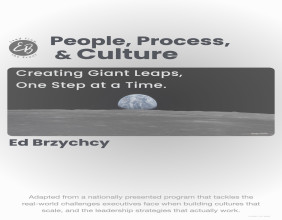Highlights
- Musk’s Proposal Elon Musk offers $97.4 billion to take control of OpenAI’s non-profit arm.
- Strategic Vision Musk aims to realign OpenAI with its original open-source mission.
- Industry Impact The bid sparks debate on the balance between profit and ethical AI development.
The artificial intelligence (AI) industry is a rapidly evolving sector that continues to reshape technological boundaries and influence various facets of modern life. As AI becomes increasingly integrated into business strategies, technological advancements, and societal functions, companies within this sector face diverse challenges and opportunities that demand careful navigation. A prominent figure in this domain, Elon Musk, recently proposed taking substantial control of OpenAI, marking a significant development within the industry.
Elon Musk's Vision for OpenAI
Elon Musk, a renowned figure in technology and space exploration, has made headlines with his strategic interest in OpenAI. Originally co-founding OpenAI in 2015, Musk departed the organization in 2018. Despite his exit, his recent actions reflect a renewed focus on OpenAI's original mission centered around open-source AI development. Musk's concerns about the company's shift toward a for-profit model have been vocalized, emphasizing his desire for OpenAI to revert to its foundational tenets.
The Proposal Details
In a bold move, Musk has made a $97.4 billion proposal to acquire control of OpenAI's non-profit arm. This strategic bid is backed by xAI, Musk's own AI enterprise. Should this offer succeed, it could pave the way for a merger that aligns both companies under a shared vision for AI. Musk's intention, however, excludes a complete acquisition of OpenAI, focusing solely on its non-profit segment, which controls the organization's core direction and mission.
The Implications of Musk's Offer
Musk's proposal has sparked interest and speculation across the AI industry. By targeting the non-profit arm, Musk seeks to influence OpenAI's leadership and its strategic course, potentially revamping its commitment to open-source development. This move aligns with Musk's longstanding advocacy for advancing AI in an ethically grounded and accessible manner.
Response from OpenAI Leadership
OpenAI's CEO, Sam Altman, has responded to Musk's offer with notable skepticism. The atmosphere between the two parties has been described as tense, following Musk's previous legal actions against OpenAI. Altman's response, which dismissed the bid with sarcasm, underscores the complexities and challenges inherent in high-stakes corporate dynamics within the AI sector. The rejection reflects OpenAI's current trajectory and highlights differing visions regarding the organization's future.
Potential Outcomes and Industry Reactions
While Musk's offer has been met with resistance, the broader implications of such a high-profile bid continue to reverberate across the industry. Observers note the potential for Musk's involvement to catalyze changes in governance strategies within AI organizations. The potential merger between OpenAI and xAI, if realized, could posit opportunities for innovation while reigniting dialogue on ethical AI development.
The Broader Impact on AI Development
The unfolding narrative surrounding Musk's bid raises essential questions about the balance between profit-driven models and altruistic technological advancement in AI. Musk's actions underscore a broader discourse on how key players within the tech industry guide the ethical and operational parameters of AI technologies. The dynamic between Musk and OpenAI may prompt other AI entities to reevaluate their strategic frameworks and core missions.
As the developments around Musk's offer continue to evolve, the AI industry observes with keen interest, acknowledging the potential ramifications on technological trajectories and strategic alliances. The tension between Musk and Altman exemplifies the challenges of aligning innovative pursuits with foundational ethical values in a rapidly advancing tech landscape. The outcome of this high-stakes proposal remains uncertain, but its significance within the AI sector is indisputable.





